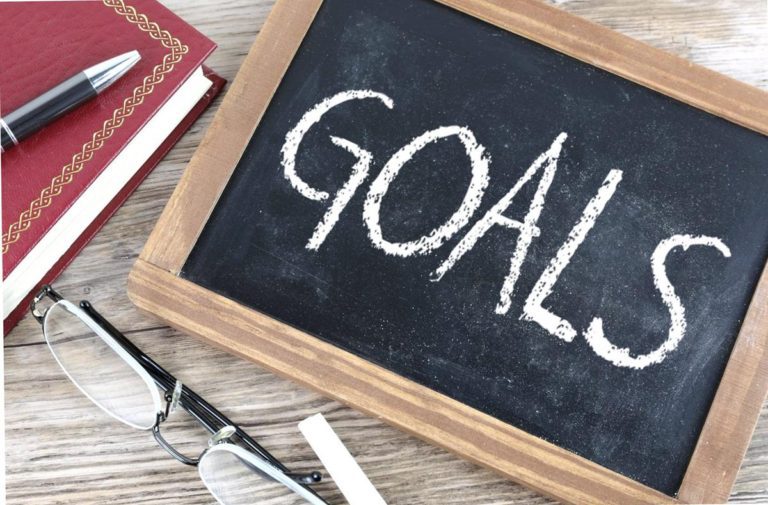
Table of Contents
Intro: Best Ways to Save Money on Everyday Purchases
Stretching the dollar to its limit can be a difficult thing given the nature of most purchase that people make, but by being more positive about the process and by understanding other tricks and strategies, this is something that can be done.
Therefore, regardless of whether an individual is interested in trying to save money on groceries, utilities, or entertainment, it is possible to incorporate effective and helpful illusions within the process that may result to even higher levels of saving within the long-run. Here in this article, I will be showing you some steps which you can follow in cutting down on your expenses on the things you buy every day so that you can save for your future projects.

1. Budgeting is one of the most effective ways of spending less, so make up a budget and adhere to it.
The best way to start saving money is making sure that one knows how it is spent. Budgeting enables the individual to record his income and expenditure in order to balance on the amount of money he needs to spend.
a) Track Your Expenses
First, budget by trying to write down each and every expense you incur for at least one full month. This will enable you to know exactly what you are spending your money on, from basic needs such as food, transport and bills, to some of the luxuries that you may not necessarily need such as eating out and going to the movies.
b) Set Spending Limits
After it you need to put down realistic budget constraints for each of the identified expense group. This will help avoid spending too much and thus you’ll be able to set aside some money to either put back or to pay debts.
c) Review Regularly
You should review your budget on a monthly basis to ensure that you’re not going over your budget and to try and find other ways to cut on some expense.
2. Do Not Spend Much Money on Groceries
Food is one of the main essential needs that always requires one to spend money on a regular basis, and there are a lot of things that can be done so as to reduce the amount of money spent on them without necessarily having to compromise on the amount or quality of food that one is able to get.
a) Nutrition – prepare meal plans and come up with a shopping list
To avoid buying additional items that are not necessary for your diet, planning of meals as well as preparing a list will adequately help you. Do not go for products that are not on your list so that you can avoid using more money than you planned.
b) Buy in Bulk
Some of these include; The key idea here is that with products that have a long shelf-life you will end up spending more than when you purchase the products in bulk. Evident from the lists above, basic products such as rice, pasta, canned food and even detergents, among others, are always cheaper when bought in bulk.
c) Coupons and CASHBACK APPLICATION
One should utilise coupons, loyalty programs and cash back apps such as Ibotta, Rakuten, Honey. These tools assist in the client in saving their money as through rebates, points or discounts given for the items the client purchases.
d) Buy Generic Brands
Sometimes it is important to go for generic or store brands because they have the same quality as the brand named products but are cheaper. Whenever possible, purchase store brands especially those belonging to the supermarket basics such as flour, sugar or canned food.

3. Reduce Transportation Costs
Transportation expenses such as travel to and from work or any other trips is also an expense that tends to dent your pocket big time. Here are some measures to take towards reduction of transport cost in your daily commute.
a) Use a pool or Public Transport
Riding to work with your colleagues or any other people you both know and trust helps in cutting down the cost of fuel and also sparing your car from the much needed repair. If one can cycling, walk or use public transport where this is possible, this will save on fuel expenses as well as on parking costs.
b) Drive Less
Reduce the number of times you go out by taking care to do most of your business in one trip. This means that you are able to conserve on fuel consumption hence minimizing the amount of fuel consumed and alleviating the stress on the vehicle. Also, as you will work on various errands at once, it will be more time-saving to have all the works done in one go.
c) Maintain Your Vehicle
General servicing including replacement of oil, change of tires and other small services like washing and cleaning are good for the car as they enhance fuel consumption and reduce expenses for repairing. To save money on fuel its good to ensure your tires have the right pressure and your car in good condition and properly tuned.
e) Taking a Cycling or Walkingolidays
If the place that has to be reached is not far away, it is always wise to move by foot or by bike since it can shave away the cost of fuel and parking.
4. Save on Utilities
Services such as electricity, water and heating have to be paid no matter what, but there are some general tips you could follow to cut the costs down.
a) Conversion of the available appliances to energy efficient appliances.
When you have to purchase some appliances, try to buy those that use less electricity or water as a source of energy. It is wise to use these appliances maybe they are a bit expensive when bought but the money saved on bills is worth it.
b) Switch off appliances and other power using gadgets when not in use.
No electronic device can be entirely cut off from power supply even when Off at times it will still be absorbing power. Some of the tips that can be followed for energy saving are to switch off appliances such as chargers, computers and televisions among others when not in use.
c) Employ the use of a Programmable Thermostat
Programmable thermostat enables you to set temperatures that suits the time table of the household. For instance, one can turn off the heater or the air conditioner at his or her workplace, but preset the desired temperature to be achieved five minutes to time the owner is expected to get home. This can help in cutting a huge amount of your heating and cooling costs.
d) Save On Water Consumption
Avoid wastage through use of low water shower and check for any leakages in your house. You can also reduce the amount of money spent on water through reducing the time one spends in the shower and avoiding using water while brushing our teeth among others.

5. Lower Entertainment Expenses
They also pointed towards leisure as something important but there are always measures to take that will not lead to spending a lot of cash.
a) Try to participate free activities
Additional advice is to choose free of charge places to have fun, for example parks, fairs or local libraries. Most towns and cities give out free concerts, movies in the park, cultural festivals and I can assure you that they are enjoyable and don’t cost a cent.
b) Streaming Services Should be Managed Properly
If you can’t afford many streaming services, one solution is to share accounts with relatives and friends or use only one streaming service at a time. It also possible to switch them, so that you subscribed to some service for few months to watch what was interesting and than switch to other few months to another.
c) Cancel Unused Subscriptions
As for those services that you have subscribed to but seldom use like magazine, app or gym subscriptions, then cancel them. Both subscriptions services can prove costly within a short span of time and canceling unimportant subscriptions releases cash for other uses.
d) Take a Loan Instead of Purchasing
It applies to books, movies and games with the thought of getting them from the library or borrowing from friends instead of purchasing new ones. This way, one will still be able to profit from many movies, games, books and other forms of entertainment without having to pay for each type.
6. Shop Smart for Clothing
Another area that most people find they spend more than they should is on clothing. Here are a few strategies that you can employ when buying clothes so as to spend less while maintaining your fashion sense.
Buy Out of Season
Sale : It means that the items of the clothing are cheaper when they are out of season. Get your heavy winter clothing and boots during summer season, when there are sales or buy summer clothes with short sleeves during the end of summer season.
b) Shop Secondhand
The second option is buying slightly used clothes, people can get them from the thrift store, consignment stores, and other online buying selling platforms such as Poshmark or even eBay. Sometimes you can actually get clothes of very good quality and from well-known brands at comparatively cheaper rates.
c) Optimize on Sales
Clothes should be bought when there are affable major sale events such as Black Friday, Cyber Monday or when seasons are over. If there something you wanted, you have to wait until it is put on sale.
d) Quality staples should be leveraged in the purchase.
Although one might prefer to have clothes that are stylish and affordable, purchasing these items of apparels that have good quality and are timeless (such as a nice pair of jeans or a blazer) is better as they will need to be replaced often.
7. Less cost on Health and other Personal expenses
Taking care of oneself goes hand in hand with having to spend a considerable of amount of money, yet there are solution to this.
a) Use Generic Medications
Brand and generic drugs are bioequivalent but the former often come with rather expensive prices whereas the latter are considerably cheaper. Remember for prescriptions, consult your doctor or the pharmacist to know if there is a generic version of the particular medication.
b) Learn to Purchase Your Health Needs on the Go
If you suffer from a health condition which requires theater, medications or a consultation, compare the prices. Sometimes you can get pharmaceuticals and treatments for cheaper and applications are available to help find cheaper goods such as prescriptions, dentist, and eye check-ups.
c) Practice Preventative Care
Being fit can be of great benefit since you are likely to spend a lot of money on your bills. Be as busy as possible, take care of what you eat, and take your health in check so that as soon as something is wrong the doctor detects it on time.
d) Cut down on expenses on such personal effects.
Few things are more essential than personal care items such as shampoo, soap or razors; which should ideally be bought in bulk or while on an offer. It is also good to note that you could employ the coupons and cashback applications to help bring the cost down of these daily user products.
8. Avoid Impulse Buying
Spling is one of the dangers of impulse buying since it can easily negate the progress of saving money. Below are some tips one can consider to avoid buying items he/she does not need.
Here again, there is the 30-Day Rule where if you don’t use something within 30 days, it usually doesn’t get used at all.
If you do not need a particular item to live, then one should wait for 30 days before he buys it. It gives you a cooling off period, and you get to know whether it is a need or a want.
b) opting out of a Service’s promotional email list
Retailers will for instance lure you with promotional emails in the hopes that you begin to shop. It removes the temptation of daily sales and new product release thus requires unsubscribing from such emails.
c) Pay with Cash
Credit and debit cards make it very easy for the spenders to go over their budgets, hence the need to avoid them all together in favor of cash. The rationale that comes with the physical use of dollars pays much attention when one is using this method of paying for goods and services.
Conclusion: Best Ways to Save Money on Everyday Purchases
People don’t need to cut costs all-in-one-go, or go for cheaper products to save money but what they need is to change their monetary habits. Some basic and wise changes like creating a budget, avoiding unnecessary purchases, using coupons and getting cashback will help you get far in cutting your daily costs. These little savings make a lot of difference at some point in time by creating savings for your future needs while still living your present life to the fullest. It is advisable to implement one or two of the strategies highlighted in this guide and expand his or her usage of these practices as the person seeks to improve personal financial management.
FAQs on The Best Ways to Save Money on Everyday Purchases
- Why is it important to save money on everyday purchases?
Saving on everyday purchases allows you to reduce unnecessary expenses, improve your financial security, and allocate more money toward long-term goals like saving, investing, or debt repayment. - What is the easiest way to start saving on daily expenses?
Begin by creating a budget and tracking your spending. Understanding where your money goes helps you identify areas where you can cut back or make adjustments. - How can I save money on groceries without sacrificing quality?
Plan meals, make a shopping list, use coupons, buy generic brands, and take advantage of sales and discounts to save on groceries without compromising the quality of your food. - What is the best strategy for using coupons effectively?
Combine store promotions with manufacturer coupons and cashback apps. Organize your coupons by category or expiration date to ensure you use them before they expire. - How can meal planning help save money on food?
Meal planning helps you avoid impulse buys, reduces food waste, and allows you to buy ingredients in bulk, all of which save money over time. - Is it cheaper to buy in bulk?
Yes, buying in bulk can be cheaper for non-perishable items and household essentials. However, make sure you only buy in bulk if it’s something you’ll use before it expires. - What apps can help me save money on everyday purchases?
Apps like Honey, Rakuten, Ibotta, and Fetch Rewards offer discounts, cashback, and rebates on everyday purchases, helping you save money seamlessly. - How can I lower my transportation costs?
Carpooling, using public transportation, walking, biking, and maintaining your vehicle for better fuel efficiency can significantly reduce transportation expenses. - What’s the most cost-effective way to handle transportation for work?
Carpooling with colleagues or using public transportation are great ways to save on fuel, parking, and vehicle maintenance costs. Consider telecommuting when possible. - How can I save money on utilities like electricity and water?
Turn off lights and electronics when not in use, unplug devices, use energy-efficient appliances, install a programmable thermostat, and reduce water usage with low-flow fixtures. - What is the most effective way to cut down on electricity costs?
Use energy-efficient appliances, switch to LED bulbs, and unplug electronics when they are not in use. Using a programmable thermostat can also reduce heating and cooling costs. - How can I save money on entertainment expenses?
Take advantage of free community events, use streaming services wisely, cancel unused subscriptions, and borrow books or movies from the library instead of buying them. - What are the best strategies for reducing subscription costs?
Review your subscriptions regularly, cancel those you don’t use, and consider sharing accounts with family or friends to lower the monthly cost of streaming services or apps. - Is it better to buy generic brands over name brands?
In most cases, generic brands offer the same quality as name brands at a lower price. For basic household goods and groceries, switching to generic can save you a significant amount over time. - How can I avoid impulse buying?
Follow the 30-day rule for large purchases, unsubscribe from promotional emails, and always shop with a list. Paying with cash instead of a credit card can also help reduce impulse spending. - How does the 30-day rule work?
The 30-day rule suggests waiting 30 days before making a non-essential purchase. If after 30 days you still feel the need to buy the item, go ahead. Often, you’ll find the urge to buy fades during that time. - What are the best ways to save money on clothing?
Shop during sales, buy out of season, shop secondhand, and invest in high-quality staple items that last longer rather than trendy pieces that quickly go out of style. - How can I save on personal care and hygiene products?
Buy personal care items in bulk when they’re on sale, use coupons, and opt for store brands. Consider making your own DIY beauty or cleaning products for additional savings. - What are cashback apps and how do they work?
Cashback apps give you a percentage of your money back when you make purchases through the app. You can either earn points that convert to cash or receive direct cashback on certain purchases. - Can switching energy providers help me save money on utilities?
Yes, shopping around for a cheaper energy provider can lower your monthly utility bills. Compare rates and look for fixed-rate plans that offer the best deal. - How can I reduce healthcare and medical costs?
Use generic medications, shop around for procedures or prescriptions, and practice preventative care by maintaining a healthy lifestyle to avoid costly medical expenses in the future. - What should I do if I want to cut spending but don’t know where to start?
Start by tracking your spending for a month. This will help you identify unnecessary expenses or areas where you’re overspending, allowing you to make targeted cuts. - Are loyalty programs worth signing up for?
Yes, many retailers offer free loyalty programs that provide discounts, coupons, or rewards points for frequent purchases, which can lead to significant savings over time. - Is it better to use credit cards or cash for everyday purchases?
Cash can help you stick to a budget and avoid overspending. However, using credit cards with rewards or cashback features can save you money if you pay off the balance in full each month. - What are some simple ways to save money every day?
Cook at home instead of dining out, turn off electronics when not in use, buy in bulk, avoid impulse purchases, and take advantage of discounts and coupons for everyday items.
Also visit:-



